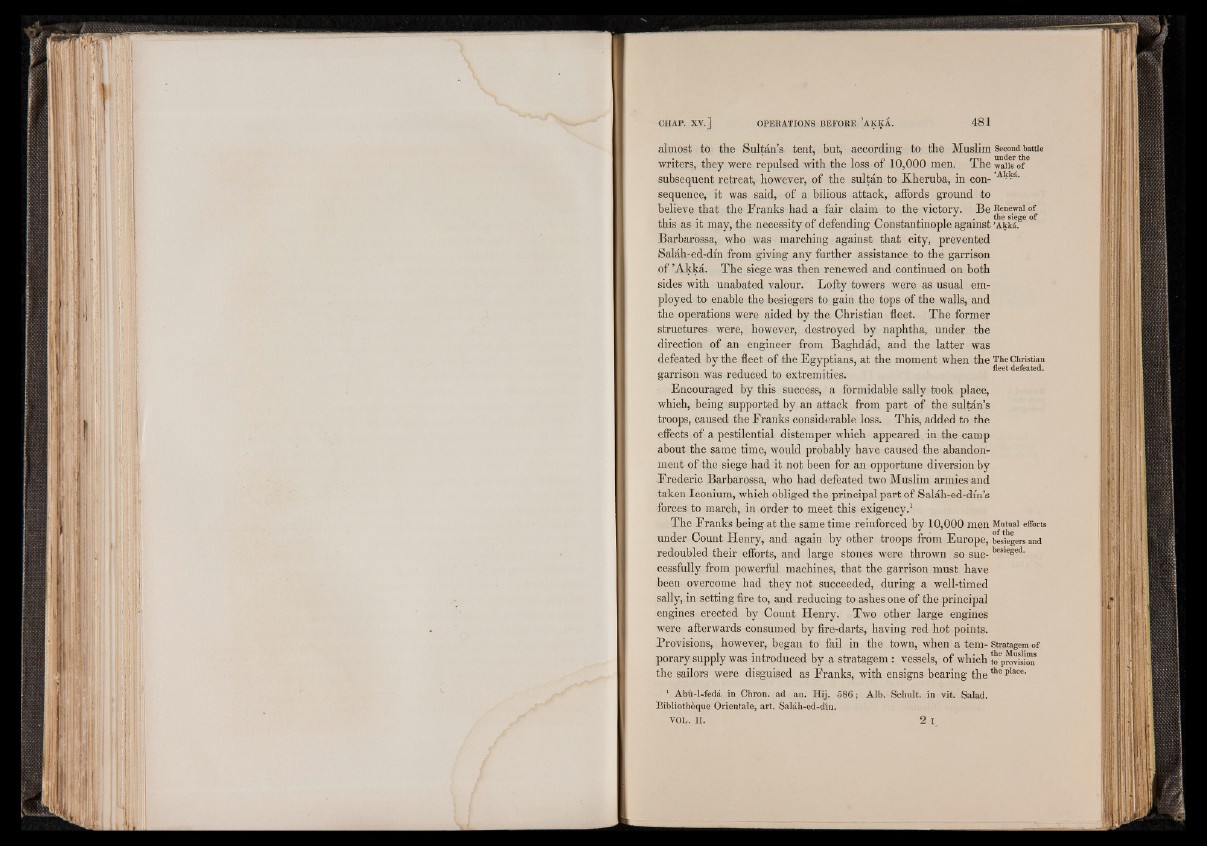
Mwtfrui»
almost to the Sultán’s tent, but, according to the Muslim Second battle
writers, they were repulsed with the loss of 10,000 men. The wails of
subsequent retreat, however, of the sultán to Kheruba, in con- A-íá'
sequence, it was said, of a bilious attack, affords ground to
believe that the Franks had a fair claim to the victory. Be Renewal of
this as it may, the necessity of defending Constantinople against ’Akklf6 °
Barbarossa, who was marching against that city, prevented
Saláh-ed-dín from giving any further assistance to the garrison
of ’Akká. The siege was then renewed and continued on both
sides with unabated valour. Lofty towers were as usual employed
to enable the besiegers to gain the tops of the walls, and
the operations were aided by the Christian fleet. The former
structures were, however, destroyed by naphtha, under the
direction of an engineer from Baghdád, and the latter was
defeated by the fleet of the Egyptians, at the moment when the The Christian
-, -, . . . . fleet defeated. garrison was reduced to extremities.
Encouraged by this success, a formidable sally took place,
which, being supported by an attack from part of the sultán’s
troops, caused the Franks considerable loss. This, added to the
effects of a pestilential distemper which appeared in the camp
about the same time, would probably have caused the abandonment
of the siege had it not been for an opportune diversion by
Frederic Barbarossa, who had defeated two Muslim armies and
taken Iconium, which obliged the principal part of Saláh-ed-dín’s
forces to march, in order to meet this exigency.1
The Franks being at the same time reinforced by 10,000 men Mutual efforts
under Count Henry, and again by other troops from Europe, besiegers and
redoubled their efforts, and large stones were thrown so sue- besieged'
cessfully from powerful machines, that the garrison must have
been overcome had they not succeeded, during a well-timed
sally, in setting fire to, and reducing to ashes one of the principal
engines erected by Count Henry. Two other large engines
were afterwards consumed by fire-darts, having red hot points.
Provisions, however, began to fail in the town, when a tern- Stratagem of
porary supply was introduced by a stratagem : vessels, of which toproíSto?
the sailors were disguised as Franks, with ensigns bearing the1116 place‘
1 Abû-1-fedà in Chron. ad an. Hij. 586 ; Alb. Sehult. in vit. Salad.
Bibliothèque Orientale; art. Saláh-ed-dín.
VOL. II. 2 I